Collagen supplements have been all the rage for some time now. You can hardly turn around without seeing someone adding collagen to their smoothies, fat bombs, and even hot chocolate!
Is collagen worth the hype? In short, yes!
Collagen is the most abundant protein in our bodies, providing our skin, digestive tract, muscles, bones, and connective tissues with structure and stability [source]. Taking a collagen supplement appears to be supportive of both skin and joint health. Anecdotal evidence also points to benefits for gut health, although current research doesn't support this claim.
Collagen supplements come in two forms, either marine collagen [source], sourced from fish scales and skin, or bovine collagen, made from cowhide. So, where does that leave vegetarians and those who stick to a plant-based diet? Without a collagen supplement, unfortunately.
There has been an ongoing effort to produce collagen from yeast [source] and from plant sources [source], but these are not yet readily available to consumers [source].
Plant-Based Nutrients + Foods for Collagen Production
The good news is that while most collagen supplements aren't vegetarian, your body is already producing collagen all by itself. And there are plenty of plant-based ways you can support your own collagen production [source] and protect the collagen that's already in your system.
1. Protein
Collagen is a protein, and like all proteins, it's composed of amino acids. In other words, you need to include good sources of plant-based protein in your diet to support collagen formation and maintain the collagen in your body.
Find it in: beans, nuts, seeds, tofu, tempeh, and nutritional yeast.
Recipes to try: Beer Battered Tofu Tacos | Sheet Pan Jerk Tempeh and Pineapple | High Protein Lunches
2. Glycine
The most abundant amino acid in collagen is glycine, and high levels have been shown to increase the production of collagen [source]. Glycine is considered "conditionally essential," meaning that your body is mostly able to synthesize it on its own, but it needs support from time to time [source].
For example, during pregnancy, a dietary source of glycine is important for forming the fetal skeletal system, skin, and teeth, and supporting your own growing body and stretching skin.
Find it in: sesame seeds, spirulina, sunflower seeds, pumpkin seeds, nori, watercress, beans, and spinach.
Recipes to try: Pumpkin Seed Energy Balls | Sweet Chili Vegetable Tacos | Dark Chocolate Cherry Granola Bites
3. Zinc
Zinc is a mineral that is super important for healthy skin. It plays a role in wound healing [source], prevents acne [source], reduces inflammation [source], and acts as a cofactor in collagen formation.
Find it in: pumpkin seeds, cashews, pecans, oats, beans and legumes, and whole grains.
Recipes to try: Comforting Cashew Curry | Overnight Oats with Chia Seeds | 7 Dinners with Black Beans
4. Vitamin C
Not naturally made by the body, vitamin C is an antioxidant that stamps out free radicals to prevent collagen breakdown. It also helps convert the amino acid proline into hydroxyproline, which stimulates collagen synthesis and works to stabilize the collagen protein structure itself [source].
Find it in: citrus fruits like oranges, lemons, and grapefruit, rose hips, broccoli, Brussels sprouts, parsley, kale, kiwi fruit, bell peppers, and beet greens.
Recipes to try: Roasted Broccoli 3 Ways | Grilled Vegetable Sandwiches | Grapefruit Immune Boosting Smoothie | Kale Salad with Oranges & Blueberries | Beet Greens and Avocado with Creamy Tahini Dressing
5. Vitamin E
Working together with vitamin C, the tocopherol compounds in vitamin E are powerful scavengers that scoop up and deactivate free radicals [source].
Find it in: green leafy vegetables like spinach and broccoli, vegetable oils like sunflower and safflower, corn, soy, nuts and seeds, mango, kiwi fruit.
Recipes to try: 3 Spinach Smoothie Recipes | Cream of Broccoli Soup | Keto Macadamia Nut Fat Bombs
6. Catechins
Catechins are a type of phenolic compound that is thought to be photo-protective to the skin, meaning they help protect it from damage caused by the sun [source]. Catechin compounds also work to prevent improper cross-linking of collagen to elastin—the other primary protein on our skin—as we age.
Find it in: green tea (especially matcha), berries, cocoa.
Recipes to try: Dark Chocolate Hemp Turmeric Fudge | Matcha Latte | Superfood Chocolate Bark | Blueberry French Toast Cups | Strawberry Mango Smoothie
7. Chlorophyll
Chlorophyll is the compound responsible for the green color in dark leafy greens and algae. Early research is pointing toward chlorophyll helping to stimulate collagen production and improve facial wrinkles [source]. It will be exciting to see how this develops!
Find it in: leafy green vegetables such as kale, collards, broccoli, arugula, and spinach.
Recipes to try: Detox Limeade | Pasta with White Beans & Arugula | Summer Vegetable Minestrone
8. Copper
Copper plays several roles to support the formation and maintenance of healthy skin. When it comes to collagen specifically, copper plays an essential role in collagen synthesis [source]. It supports fibroblast generation, which in turn supports the production of collagen.
Copper also helps to stimulate collagen production and acts as a catalyst for building collagen fibrils. It's also cool to note that about 15% of the body's copper is found within the skin [source]!
Find it in: nuts, seeds, leafy greens, shiitake mushrooms, and spirulina.
Recipes to try: Spirulina Chia Breakfast Pudding | Caramel Nut Hemp Granola Bars | Green Lemonade | Vegetarian Pho
This article was medically reviewed by Dr. Gina Jansheski, a licensed, board-certified physician who has been practicing for more than 20 years. Learn more about Hello Glow's medical reviewers here. As always, this is not personal medical advice and we recommend that you talk with your doctor.
176
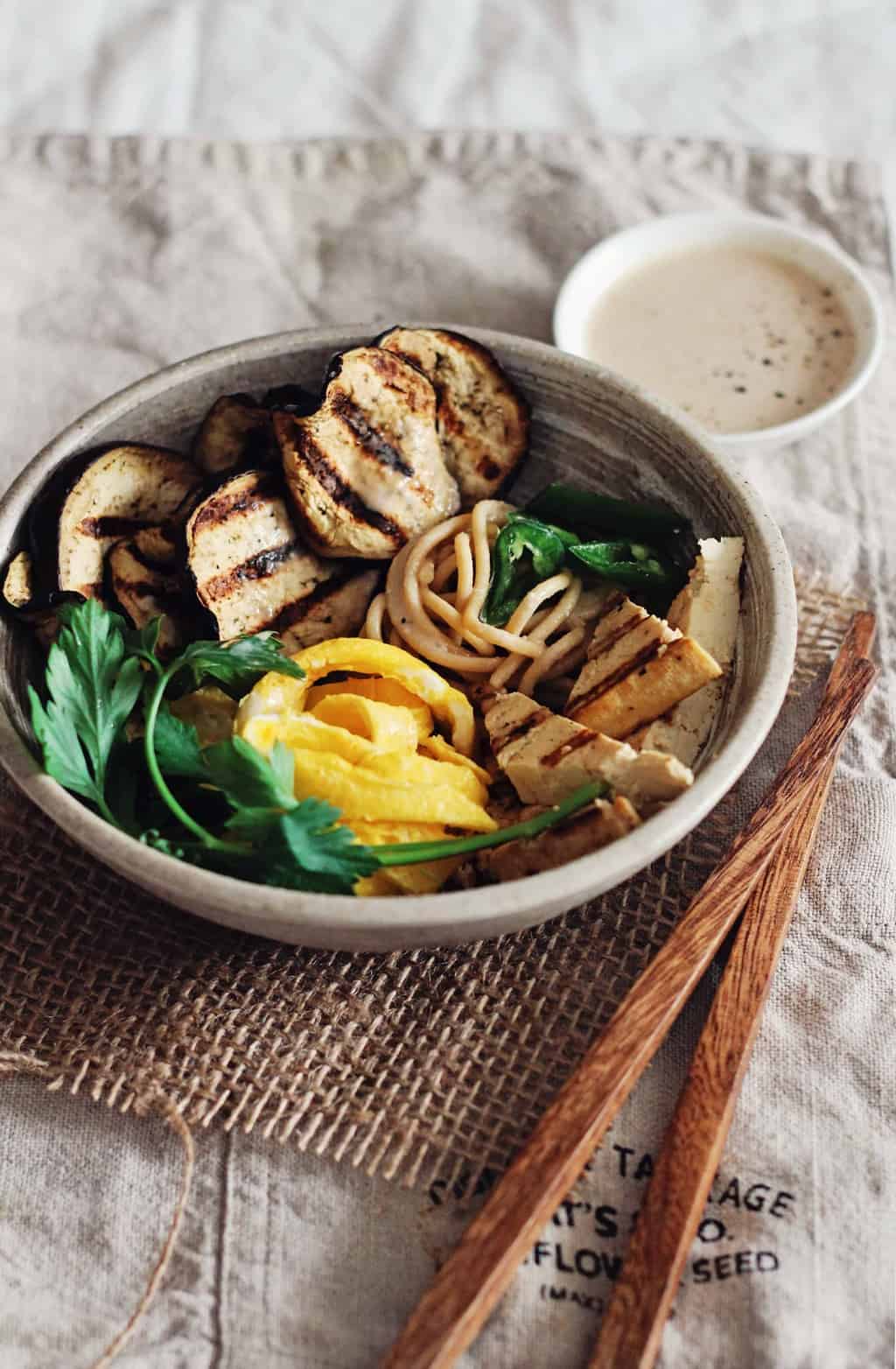
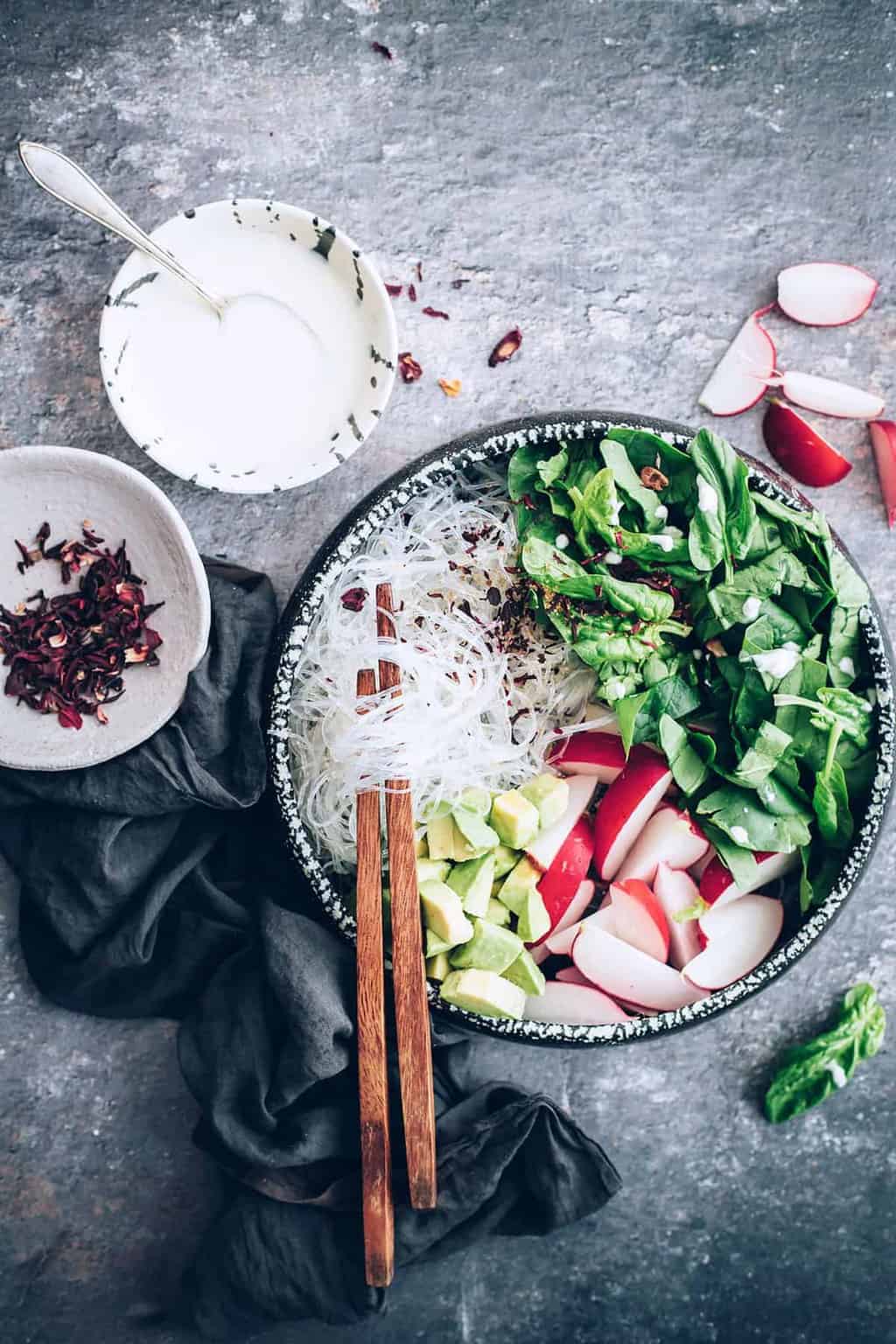
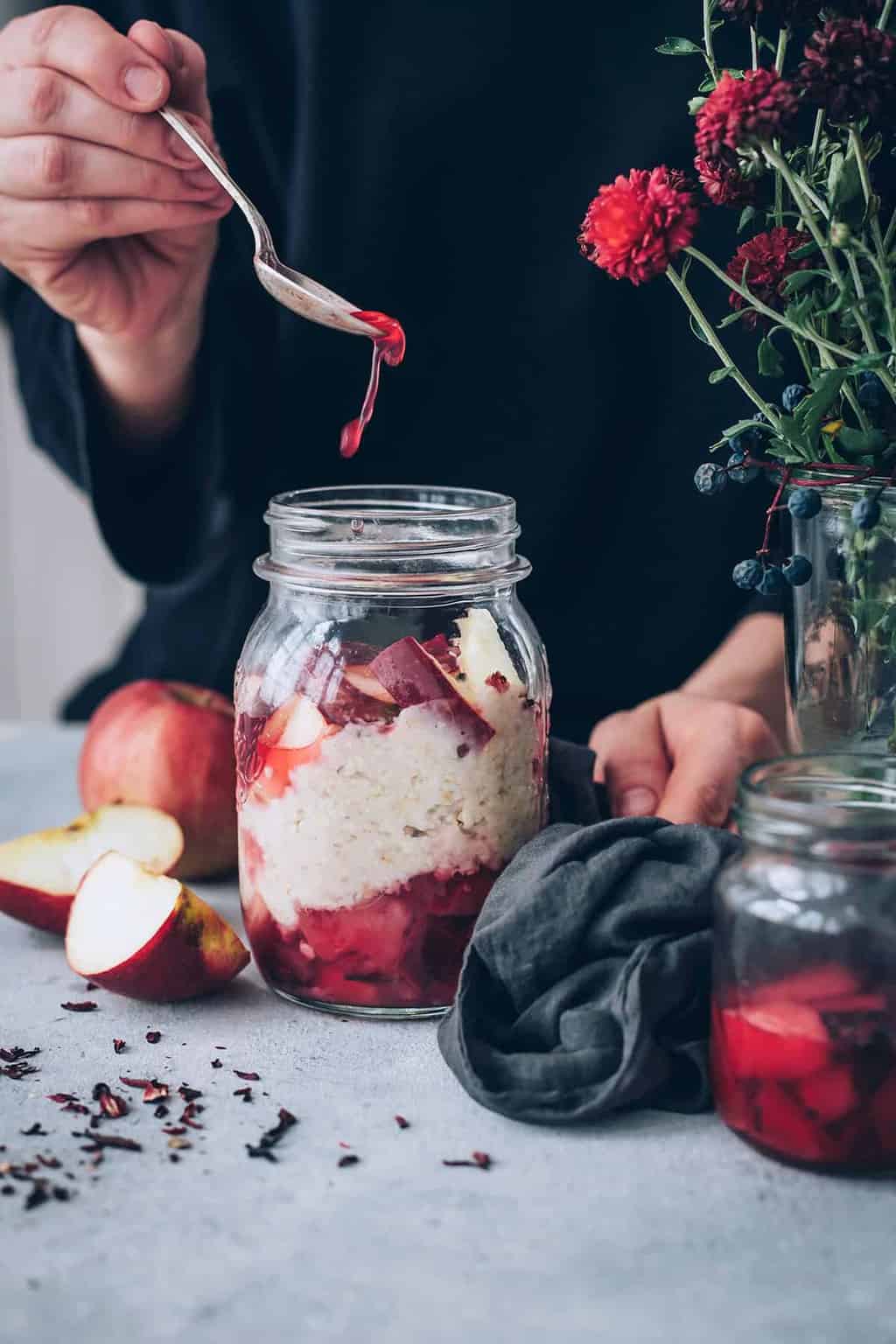
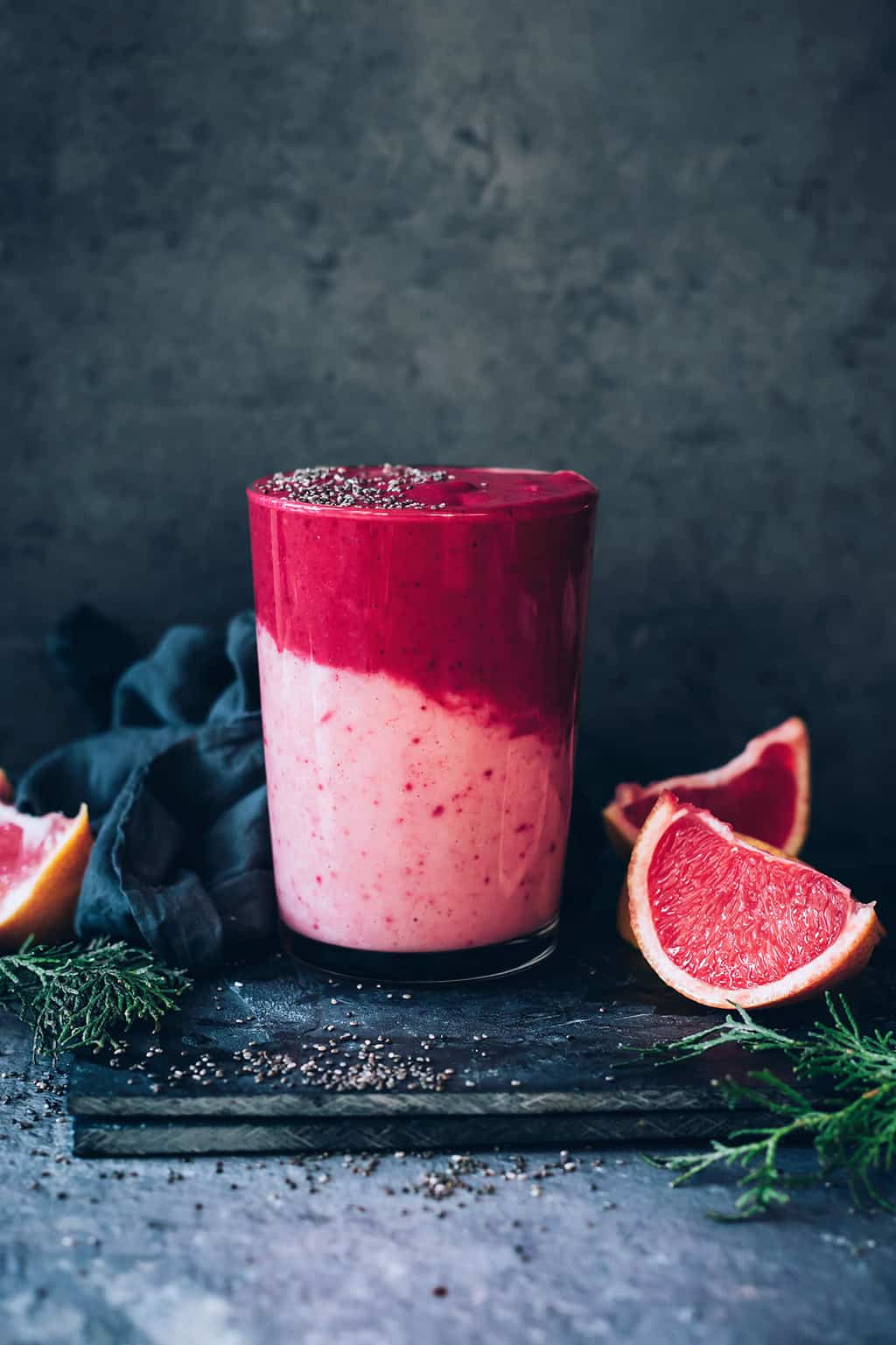
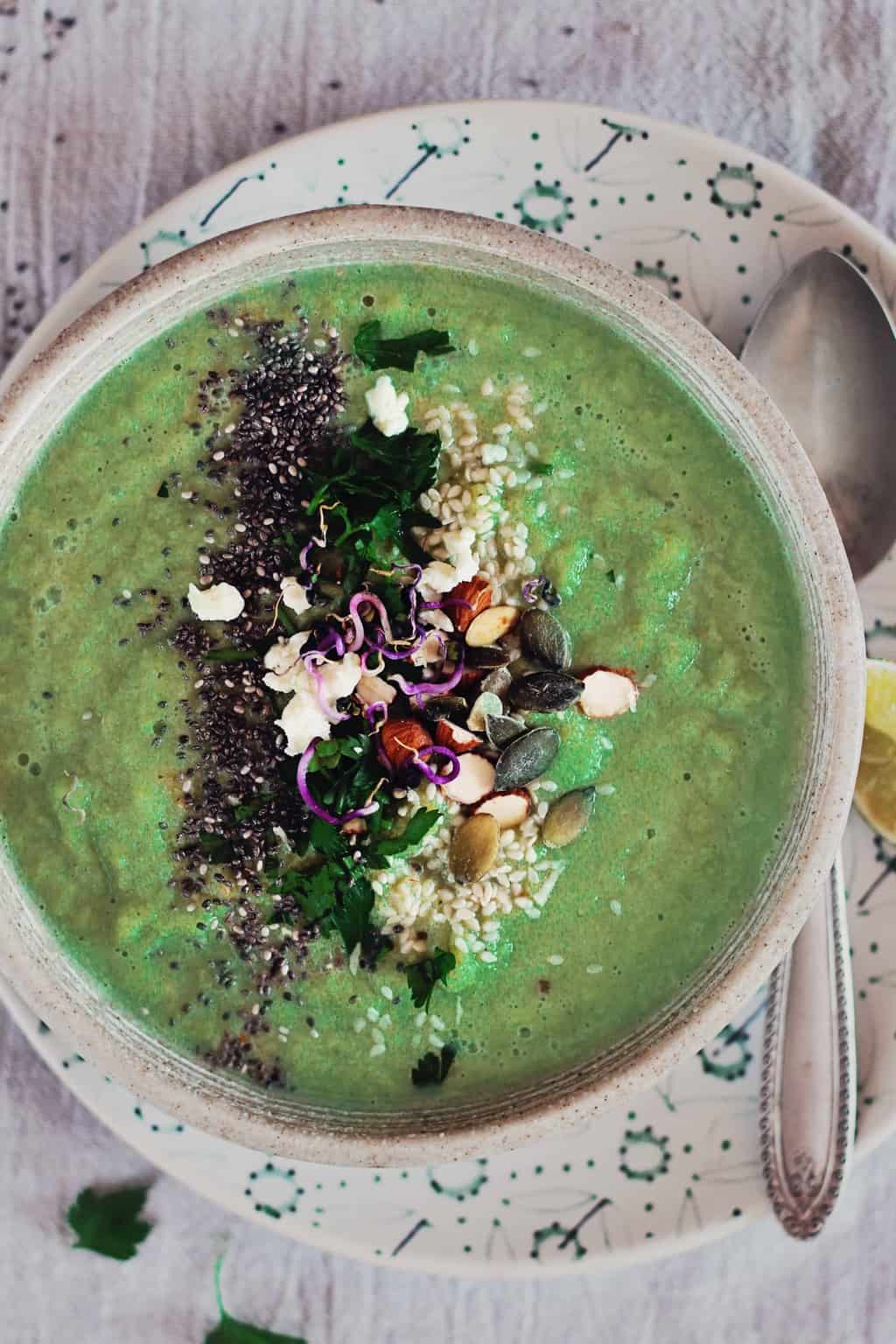
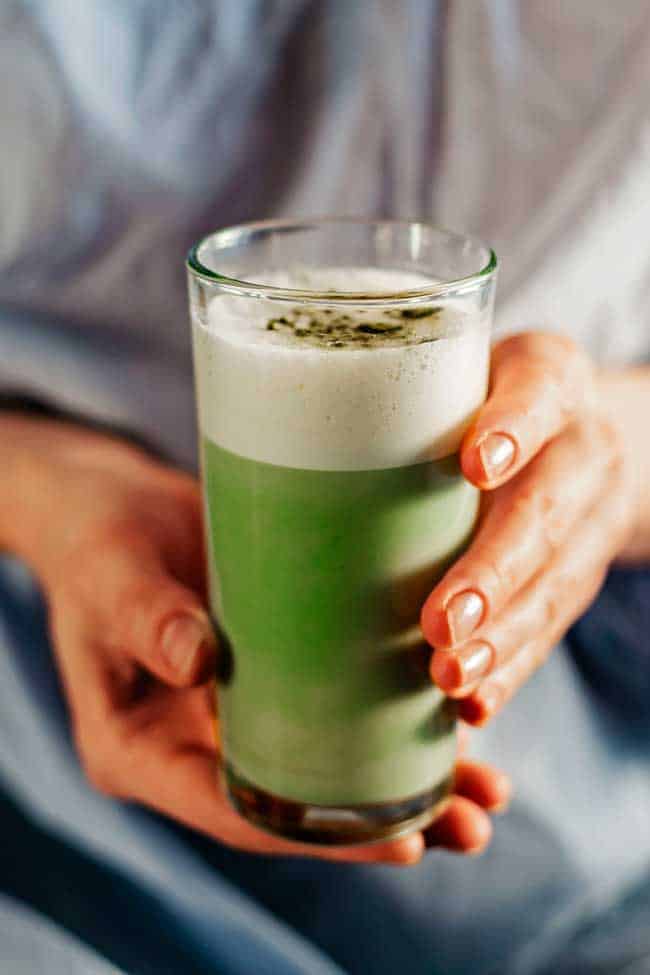
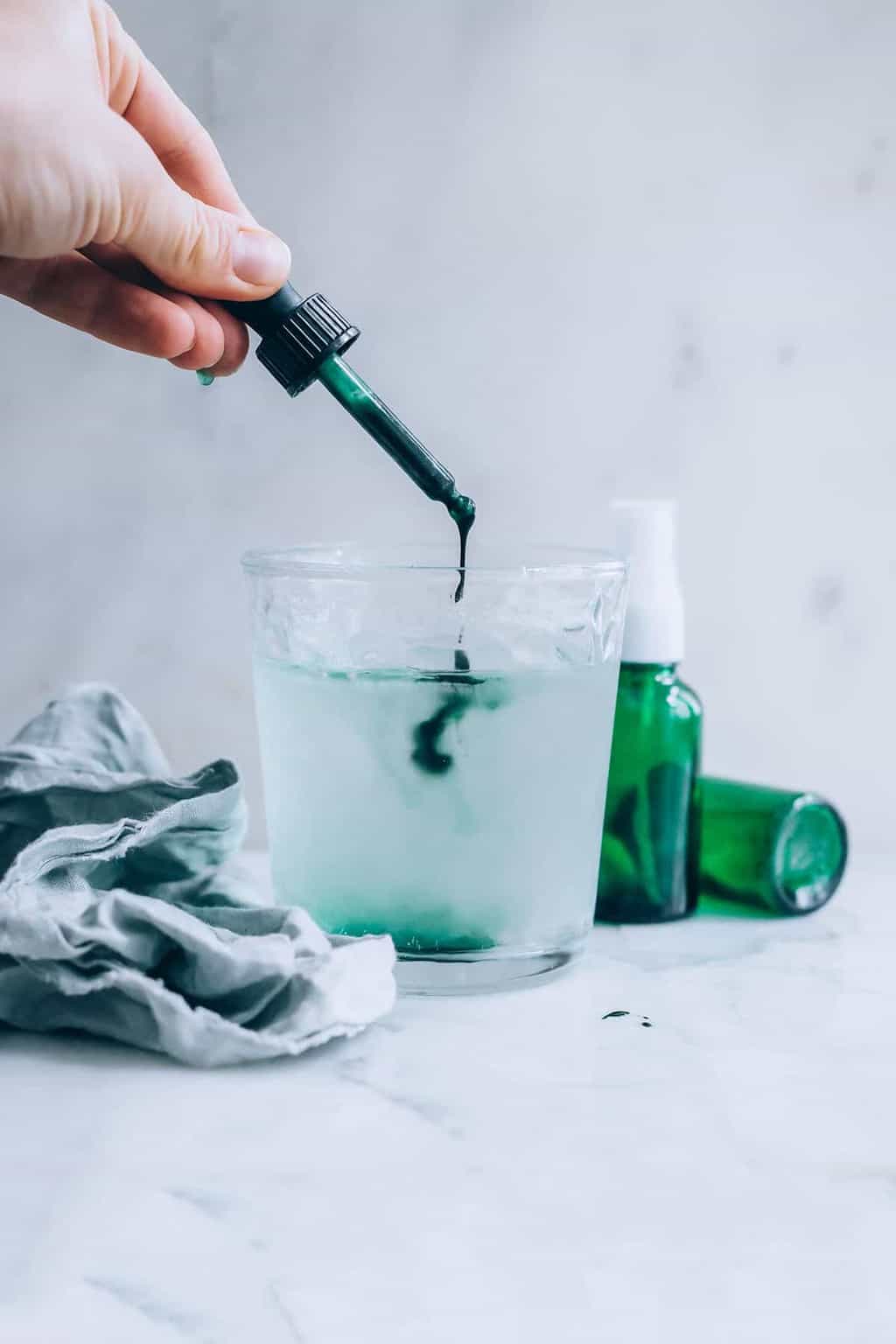
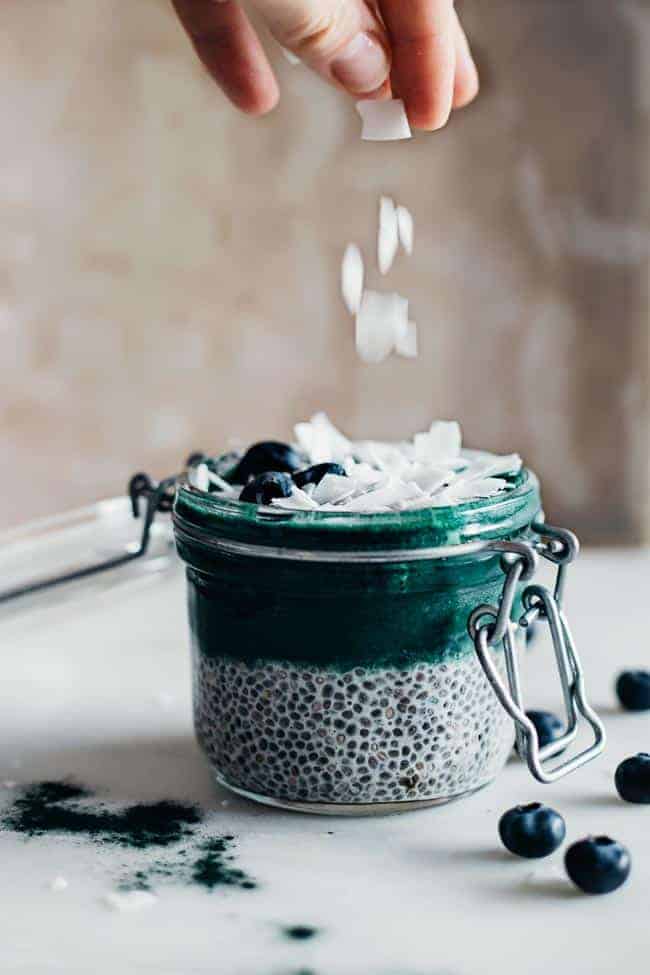
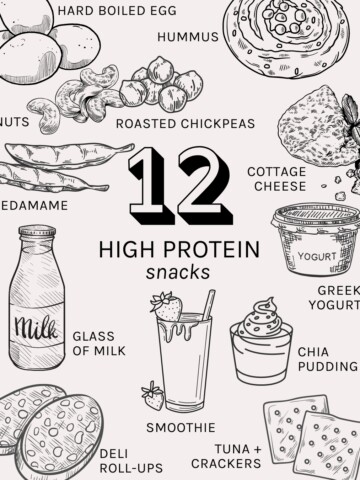
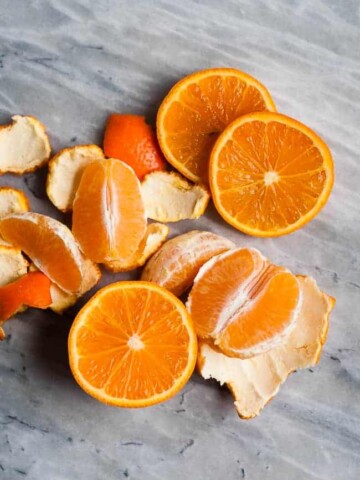
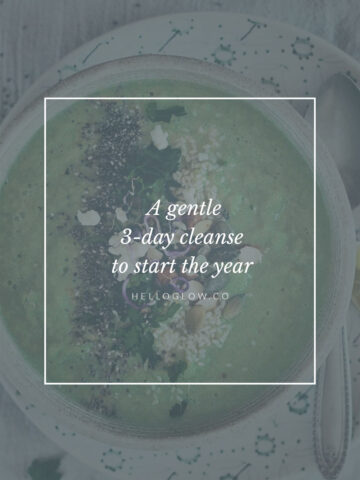
Leave a Comment